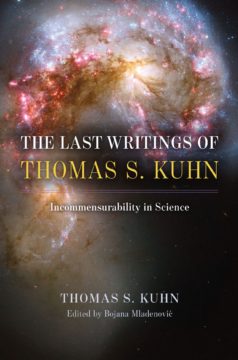 Paul Dicken in LA Review of Books:
Paul Dicken in LA Review of Books:
DELIVERING THE SHEARMAN Memorial Lectures at University College, London, in November 1987, Thomas Kuhn reflected on the moment that launched his philosophical career. He had been a graduate student at the time, preparing the obligatory freshman survey course in the history of science, and trying to understand how anyone ever accepted Aristotelian physics. Kuhn vividly recalls gazing out of his window for some time before suddenly grasping that Aristotle had meant something very different by “motion” from his Newtonian successors. Aristotle’s notion was broader: it encompassed how an acorn grows into an oak, or how the healthy decline into sickness, rather than just how physical objects move from one location to another. Many of the apparent absurdities of his theory — the impossibility of a projectile continuing to move once released from its source — were actually the result of reading contemporary concepts of motion back into his text. It was essentially a problem of translation: of not being able to think oneself into an entirely different world, and not simply a problem of trying to capture the nuance of the original Greek. Put simply, two different eras could not be expected to carve nature along the same joints.
Kuhn’s insight would overturn how we think about scientific progress. The traditional model had assumed a steady process of conjecture and refutation, beginning from a body of self-evident observations (the stone drops, this iron rusts, that raven is black) from which we infer universal generalizations; ongoing tweaks then further refine the theory for the purposes of ever better predictive accuracy.
More here.
